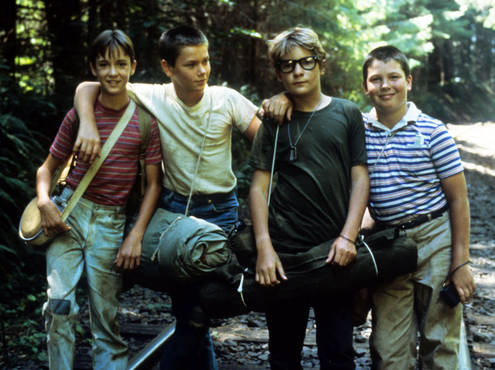Ah friendship. What a wonderful thing. It’s such an integral part to being a human, that even if no one is around, we’ll use inanimate objects to create friends. Just see that great doc about Tom Hanks when he was stranded on an island for proof. As the philosopher Freddy Mercury once put it, “Ooh, you make me live. You’re my best friend.”
But for being such an integral part of our beings, it can also be a tricky thing to do correctly. Now, to be clear, this is not an accusatory piece about how my friends are terrible. My friends are awesome. All of them. They’re the two greatest people ever. I mean one’s imaginary, but that’s just a personality quirk. No, this article is an exploration of what it means to be a good friend, and the true nature of friendship.
How you define a “friend” is a bit of a gray area nowadays. Now that social media is deeply ingrained in our society, we have the commonplace occurrence of having ongoing social interactions with people we rarely, if ever, see. I remember the first time that I met someone who knew my friends purely through Instagram. It was interesting because you’re enjoying hanging out with the person, and having engaging conversation, but every once in a while there’s this thought of “I have no idea who this person is.” In some ways it was like the friends version of online dating.
This version of a pseudo-friend, more intimate than an acquaintance yet not someone you’d share your secrets with, is prevalent even without the context of meeting through social media. The most obvious example of this (to me, ‘cause of the places I frequent) is the bar friend. I’ve hung out in quite literally countless bars (counting is hard when whiskey’s involved), and have had just as countless memorable experiences with bar friends (most of which would be a lot more memorable if I could remember them). I mean in a lot of ways a bar friend is the perfect friend situation. You get all of the enjoyment of friendship, with none of the work of actual friendship. But the danger is that you start to think that this is what true friendship is.
In a lot of ways, true friendship is defined more by the bad than the good. In my humble but expert and totally right opinion, this is a result of honesty. While I would argue that honesty is the keystone in any relationship, it is most important in a friendship. For example, if your significant other asks you if they look good, the answer is always yes. If your friend asks you, there’s a time and place where it’s your duty to say no.
Being honest with each other means that you’ve established trust. For better or for worse, you know that your friend is going to tell it like it is. I was talking with a friend about our mutual friend who is with someone that everyone in our friend circle agrees is not good for this mutual friend (for obvious reasons I’m not naming names here). This is one of those situations where as a friend you have an obligation to speak up and say “Look, I love you, but you can do better. This person is bad news.” Which sucks because you don’t want to hurt your friend’s feelings, and you don’t want to create an awkward situation, but if you would keep quiet you’d be betraying the trust that that friend has in you. Same thing happened to me when my friend talked me out of buying jorts (though I still maintain my killer calves would look great under an umbrella of denim).
The other important aspect of a good friendship is, for lack of a better term, presence. You need to be there for your friends. That sounds obvious, but is more nuanced than you may think. In today’s busy world, simply being present in your friend’s daily lives can be tough. Especially if you don’t live in the same area. But there needs to be an understanding that your friend is there for you. I am not ashamed to say that I’ve ended friendships because I was in a low point in my life, and I knew they knew it, and they didn’t reach out. If you can come away with one thing from this article, I’d like for you to come away with the knowledge that all it takes to be present in your friend’s life is the following statement. It’s a stupid simple statement, and people say it insincerely all the time. But when it comes from a friend, it speaks volumes. All you have to do is ask “How are you doing?”
And presence doesn’t necessarily mean speaking with your friends on a daily basis. I don’t live anywhere near two of my best friends, and I speak with them infrequently at best. But we keep up with each others’ lives, and if we’re going through something (both good and bad), there’s an understanding that we’re there for each other. We know this to be true because when we do speak, or when we do see each other, it’s as if we spoke just yesterday.
So keep these things in mind the next time you think about your friends. Or if you question who your friends truly are. Because it’s true that good friends are hard to come by, and it’s even truer that good friends are harder to keep. But the good news is that you’ll notice your good friends are the ones who it doesn’t feel hard keeping. If you think about your history together, you’ll realize that there’s been a lot of work put in, on both ends, but it doesn’t always feel that way. They’ve traversed your hardships and you’ve called them out when they needed it. They’re the ones who asked “How are you doing?”














-300x200.jpeg)
-300x213.jpeg)










